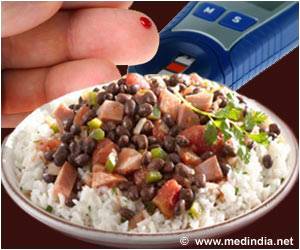Though its is widely known that obesity is directly linked to the development of Type-II diabetes, still the main reason for its cause remains unknown.

“It was a regular, American diet, composed of pizzas, hamburgers and that sort of thing,” says Merali. All the volunteers were carefully monitored and were also prevented from exercising. By the end of the week, each volunteer was around 3.5 kilograms heavier than when they started.
Boden and Merali’s team noticed that the volunteers were urinating increasing amounts of oxidized lipid compounds, which are caused by reactive oxygen species attacking cell membranes, and are a hallmark of oxidative stress within the body.
Researchers suggested that the oxidative stress caused by overeating hampers blood sugar regulation because it changes the structure of a protein that is normally responsible for taking glucose out of the bloodstream.
“When the group looked closer, they could see the signs of this stress in biopsies of the volunteers’ fat tissue. This seems to be the beginning of the process that leads to insulin resistance. Insulin sends the same message, but the glucose is not removed from the blood. This is a brand new way to get from over-nutrition to insulin resistance,” says Boden.
“It’s a pretty cool finding. Oxidative stress and a damaged glucose-transporting protein may be the most important factor in insulin resistance, although other mechanisms are probably still involved. Overeating can also cause fat to build up in muscles and the liver – we still don’t know the mechanisms behind this,” said Francis Stephen at the University of Nottingham, UK.
Advertisement
Source-Medindia















